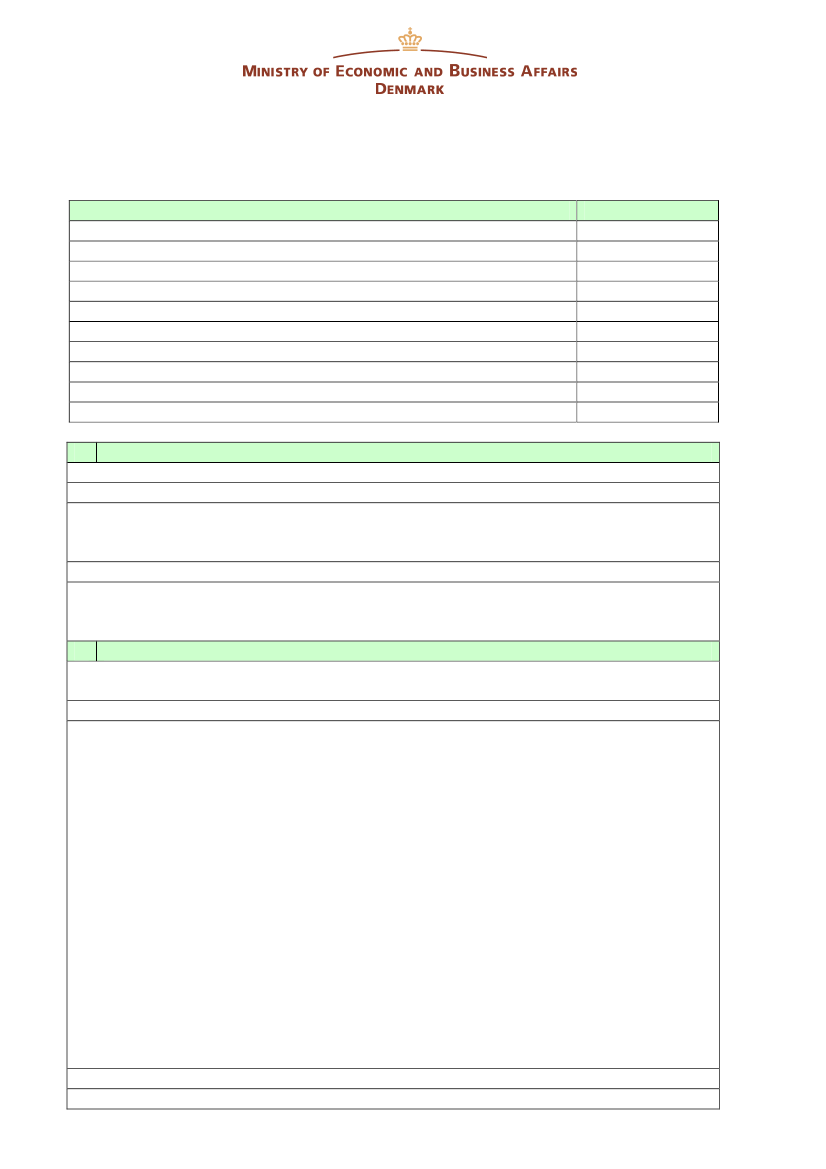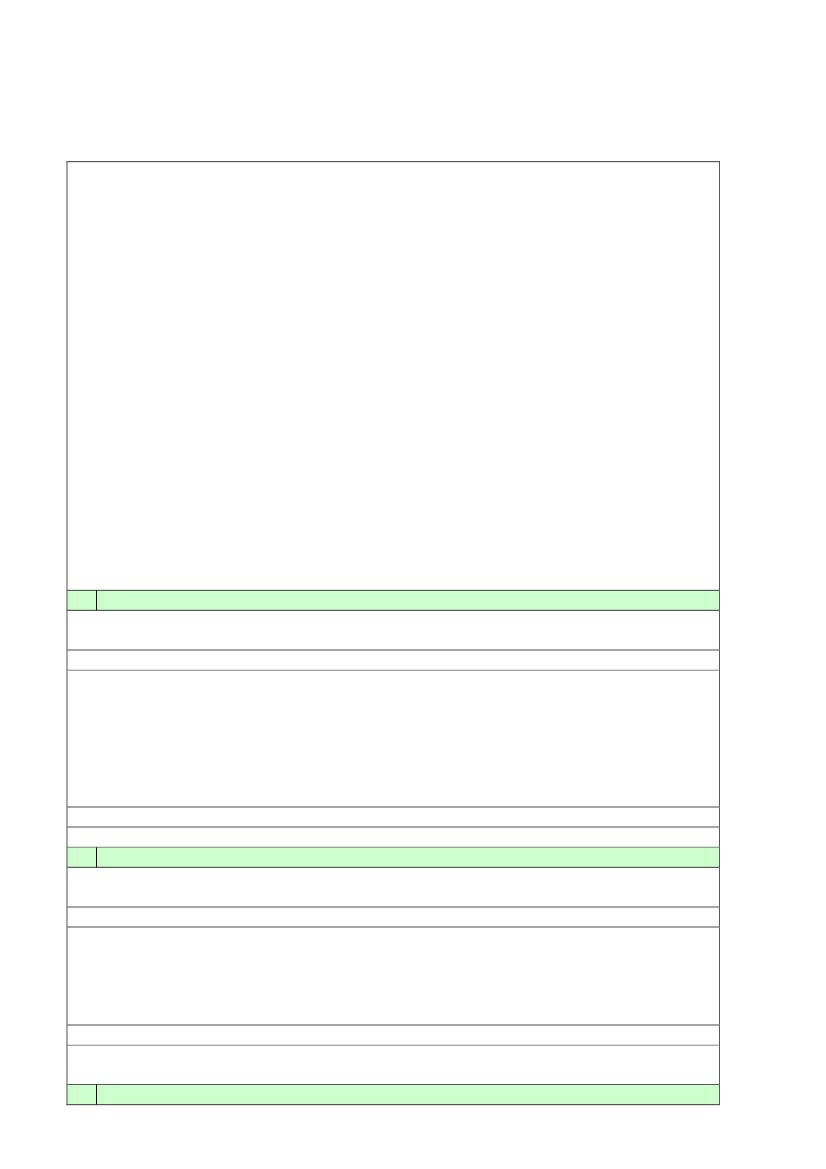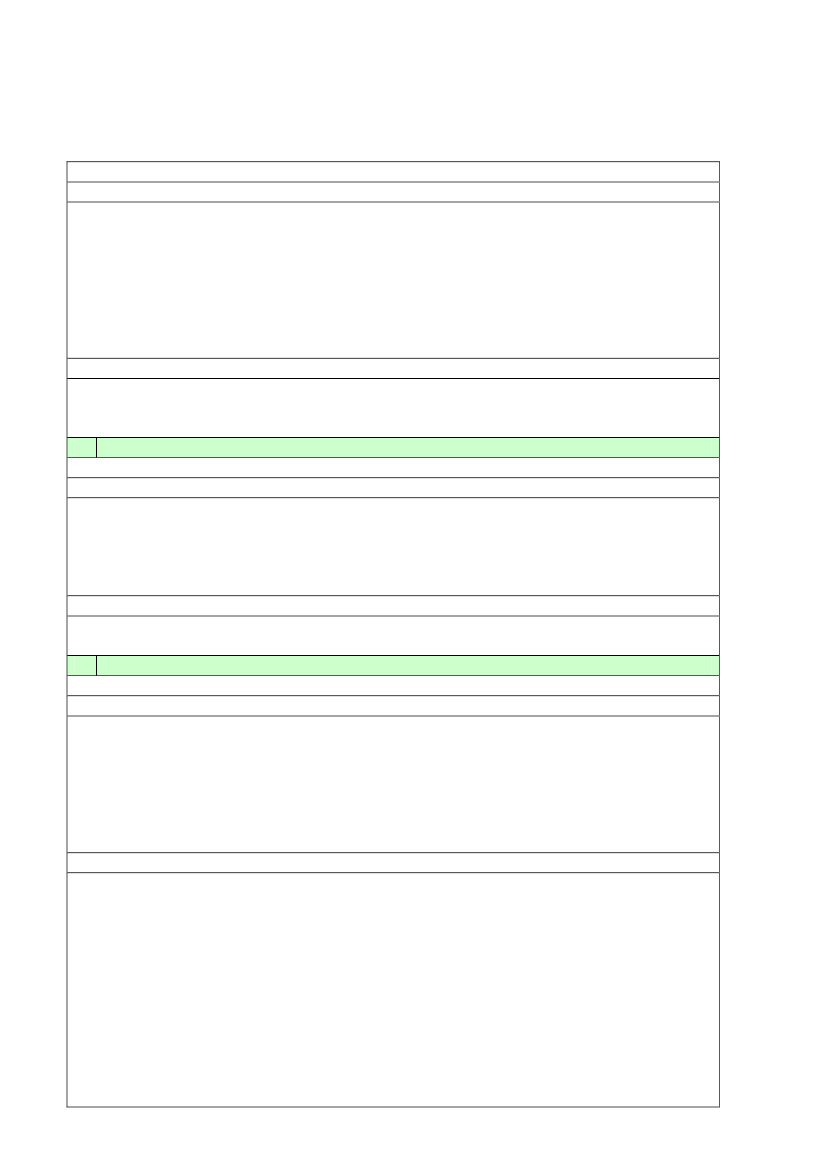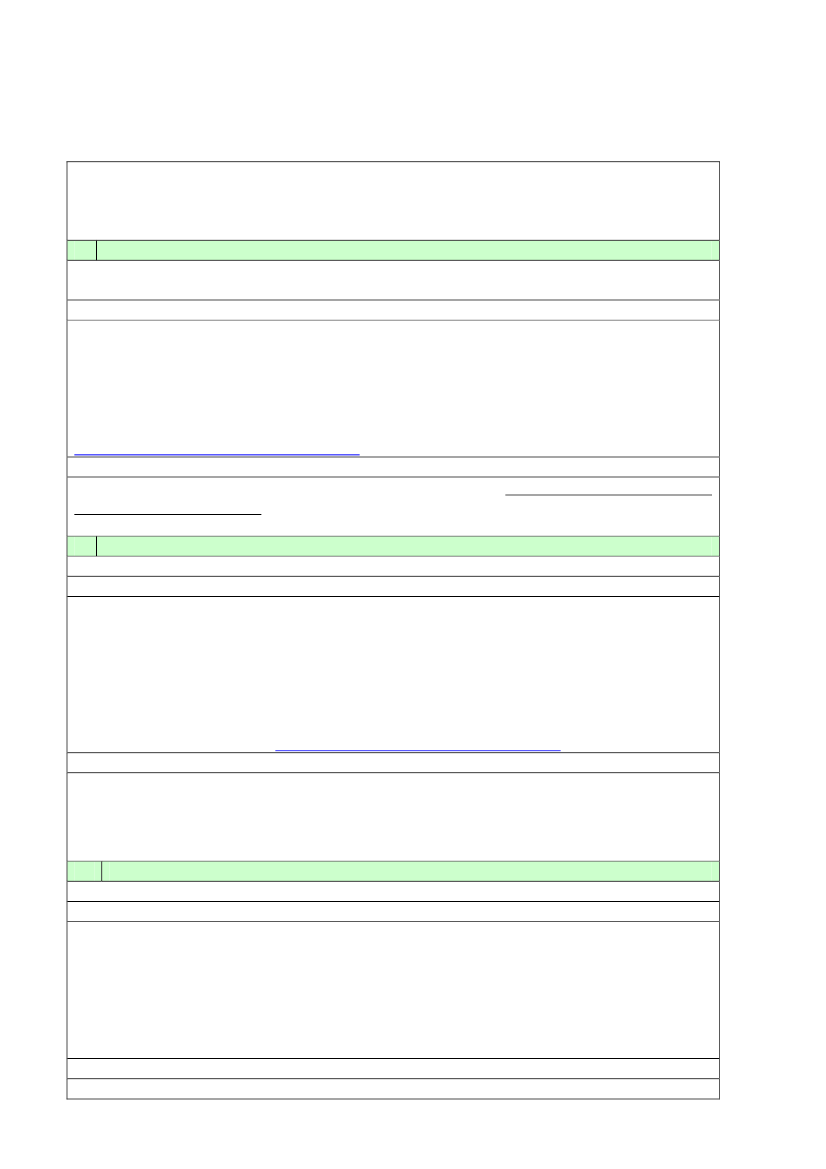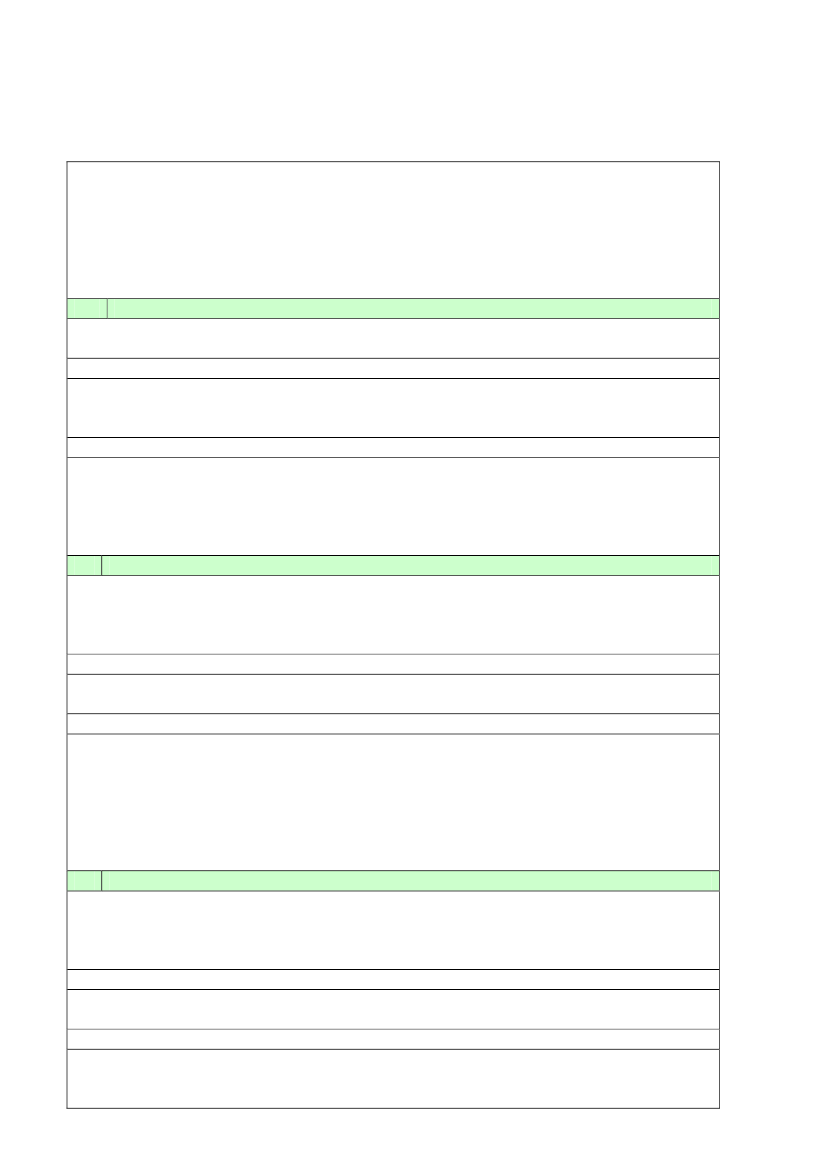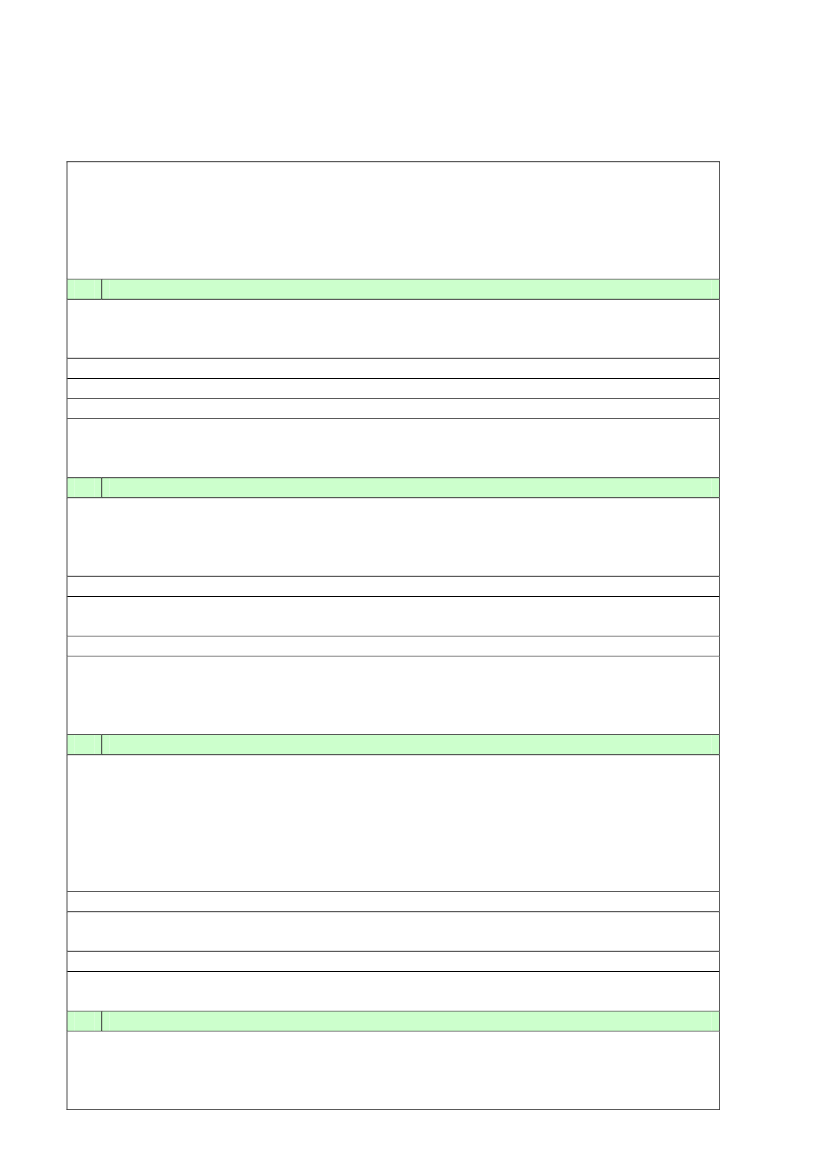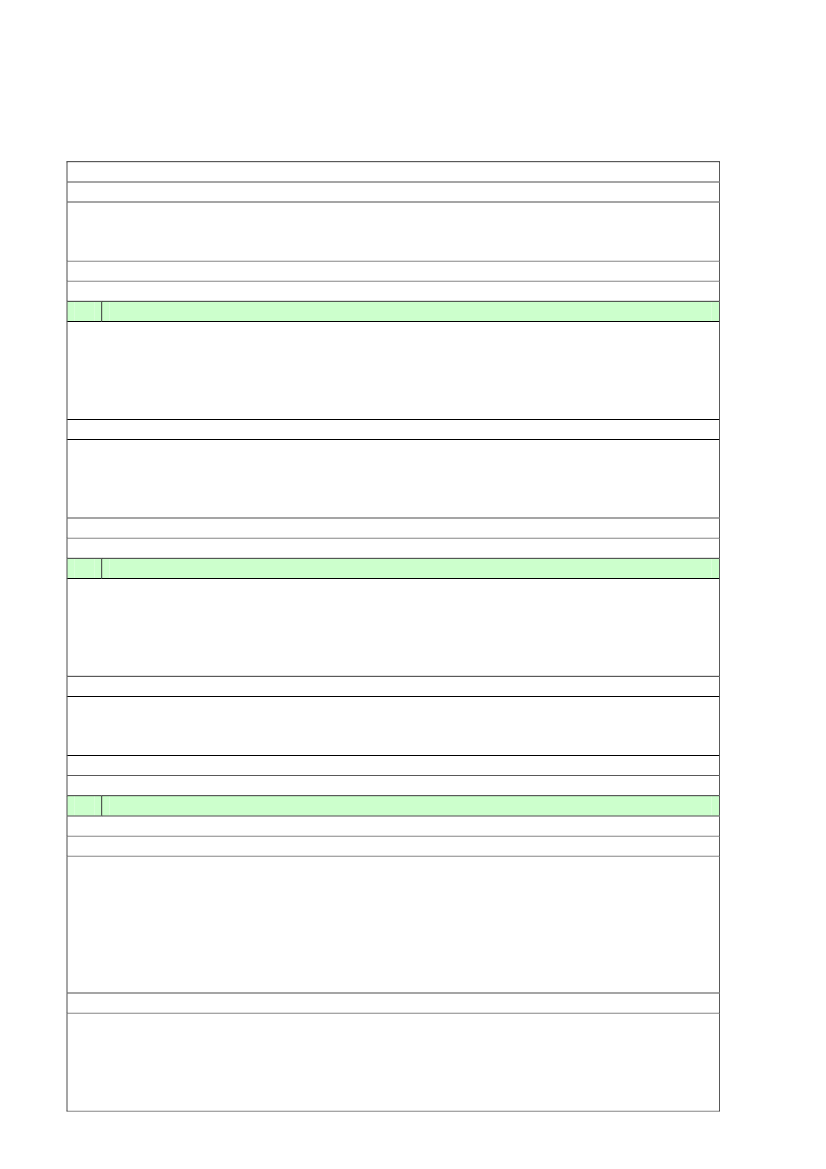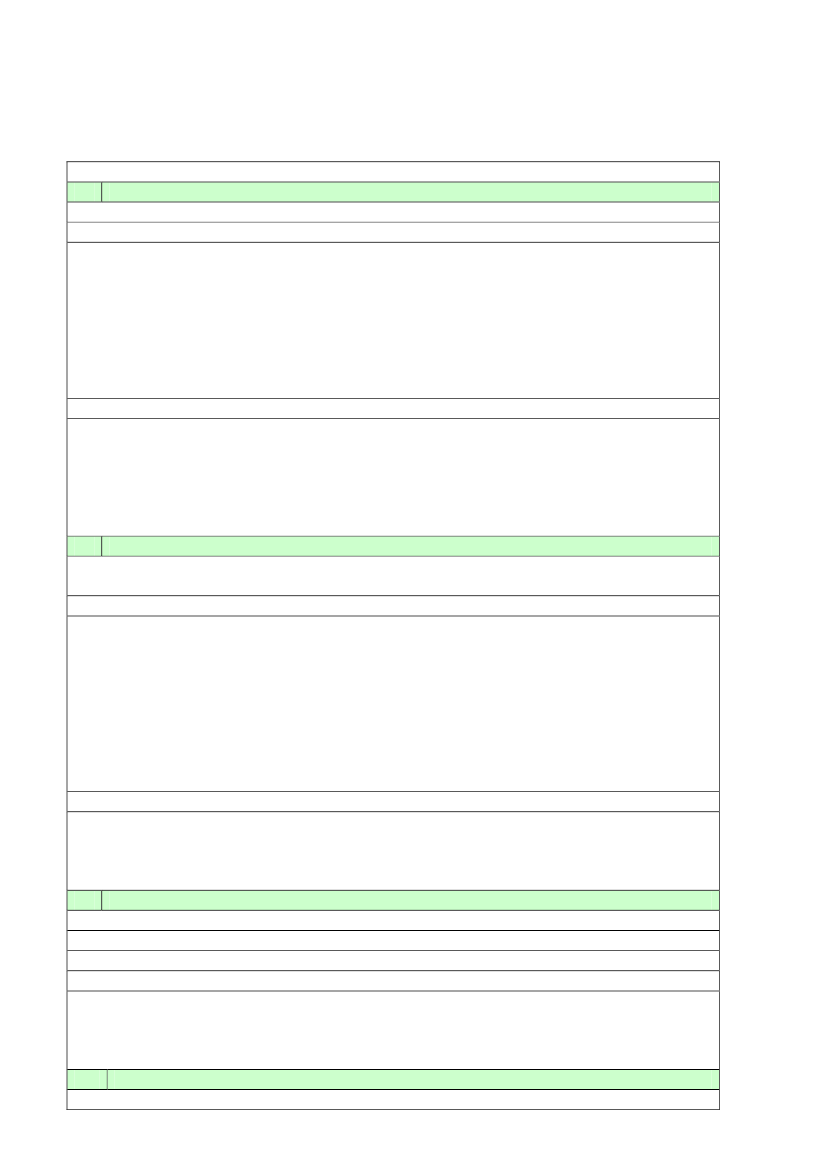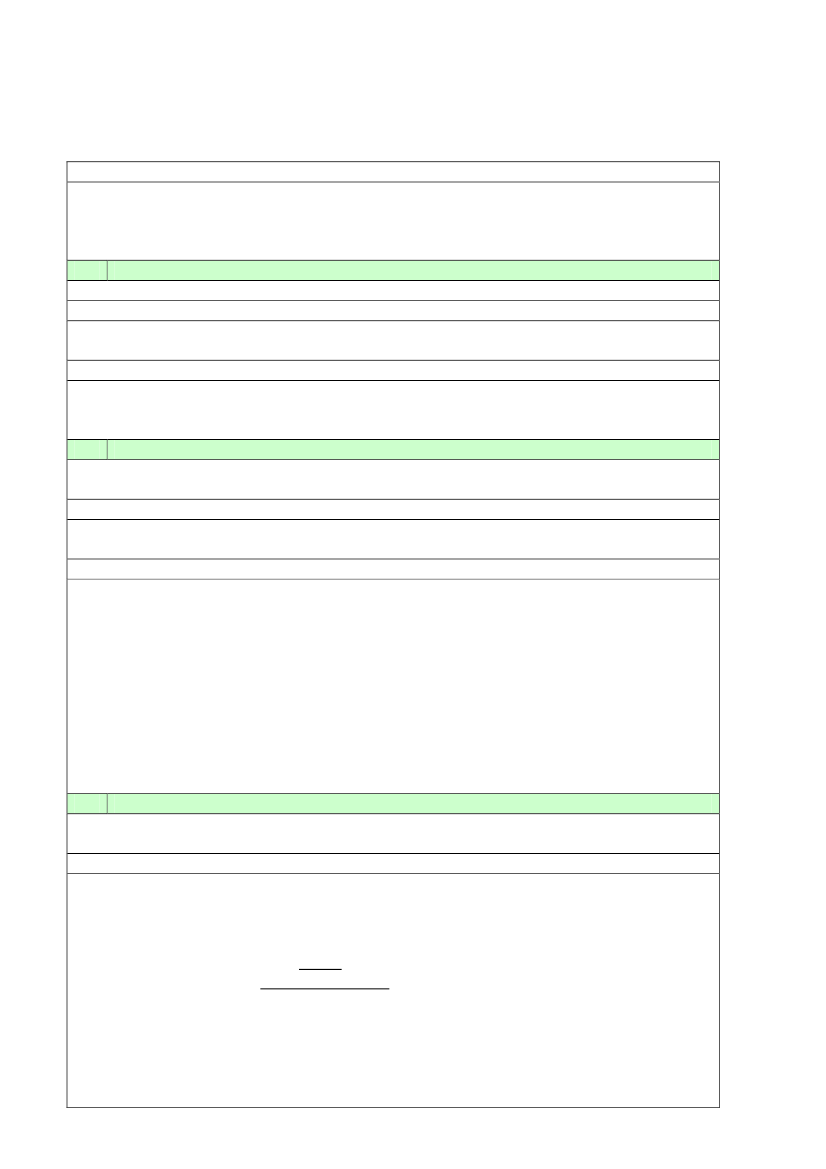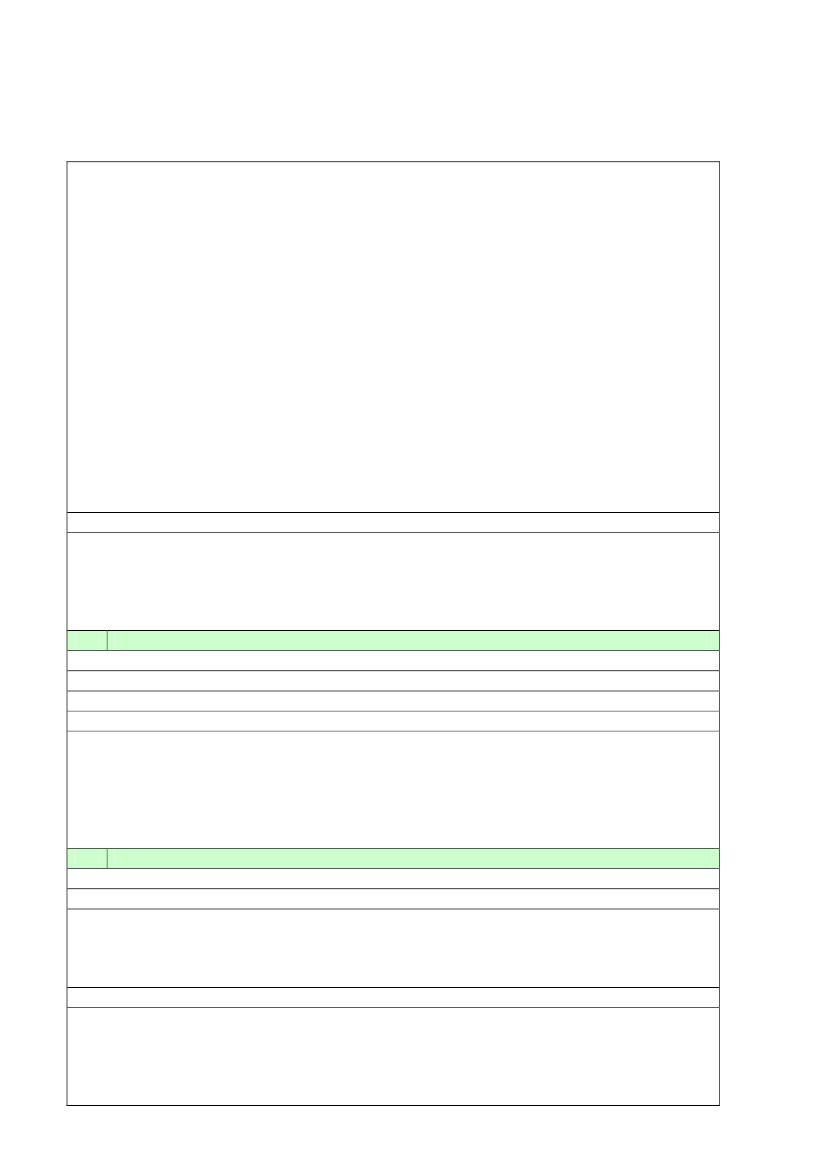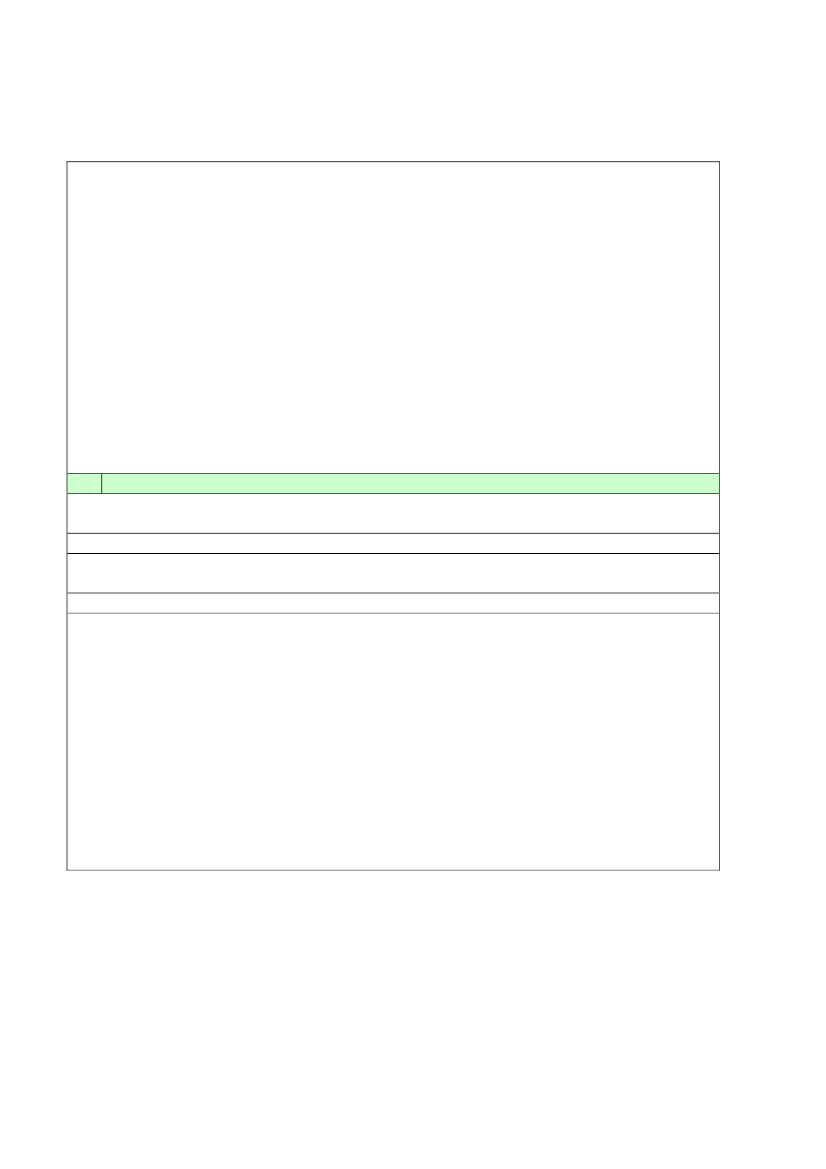Erhvervsudvalget 2009-10
ERU Alm.del Bilag 117
Offentligt
7. November 2008
30 Danish proposals for EU simplificationArea of the proposalEnvironmentCompany LawCompany Law – accountancyFood safetyFisheriesAgricultureStatisticsFinancialMaritimeTotalNo of proposals45223345230
1 EnvironmentEuropean Waste Shipment Regulation 1013/2006 EC.Description of simplification proposalDigitalisation – to develop a standardised interface for exchange of information and documentslisted in article 26 of the Regulation for all Member States instead of the current paper basedadministrative procedures.Reason for simplificationDK proposes that a joint electronic interface for the exchange of data for electronic transposi-tion between European Member States is developed. This could reduce the administrative bur-dens for both companies and authorities in the Member States.2 EnvironmentDirective 2000/76/EC of the European Parliament and of the Council of 4 December 2000 onthe Incineration of Waste.Description of simplification proposalDK wish to put forward two proposals regarding the directive on waste incineration:1) Exemption from the requirements of continuous measurements on waste incineration plantsand waste co-incineration plants with a nominal capacity of less than 6 tonnes per hour.The authority may decide not to require continuous measurements for NOx,total dust, TOC,HCl, HF and SO2and require periodic measurements or no measurements when the wastefractions are homogenous and well defined – typically arising in the industry.2) DK proposes the sampling time for dioxins and furans is proposed to be 30 minutes to 8hours like for heavy metals. This will make the measurement of dioxin a lot more cost ef-fective and will not have a negative effect on quality.This will require a revision of the WI directive (Article 11, para 4 and annex II, para II 2.2 andannex V, para (d))The revisions are preferred to be accomplished through an independent fast track procedure inrelation to the waste incineration directive or alternatively in connection to the current revisionof the IPPC-directive. The last option will require a revision of the recast of the IPPC (AnnexVI, part 6, para 2 and annex VI, part 3, para 1.4 and annex VI, part 4, para 4.2).Reason for simplificationToday the authority can decide not to require continuous measurements for HCl, HF and SO2.
2/11
In the proposal of the directive on industrial emissions (IPPC recast) it is proposed that the au-thority can decide not to require continuous measurements on NOxon waste incineration plantsand waste co-incineration plants with a nominal capacity of less than 6 tonnes per hour. DKwish to propose that the authority also can decide not to require continuous measurements ontotal dust and TOC on waste incineration plants and waste co-incineration plants with a nomi-nal capacity of less than 6 tonnes per hour as well as the continuous measurements of relatedwaste gas parameters such as O2, pressure and temperature. The competent authority may re-quire periodic measurements or no measurements.The proposal will reduce the costs for these plants with a nominal capacity of less than 6 ton-nes per hour considerately. They will save costs for measurements as well as time and costs foroperating the continuous measurement systems.In the waste incineration directive dioxin average values shall be measured over a sample pe-riod of minimum of 6 hours and a maximum of 8 hours. Developments in analytical techniquesmeans that such a long sampling time only occasional are needed.At the same time, most waste-incineration plants runs with such a steady operation on the di-oxin cleansing, that the inclusions of variations cannot justify such a long timescale for themeasuring.The proposal will save time and costs on measurements of dioxin and furans.3 EnvironmentRegulation on pesticides (Common Position adopted by the Council no. 11119/08) and regula-tion on ozone (2037/2000).Description of simplification proposalBoth regulations constitutes approaching revisions of existing legislation. Danish priorities asregards to both regulations are to focus on predictability in the permission scheme and focus oneffectiveness in order to avoid duplication of work for the companies.Mutual recognition of pesticides in order to minimise duplication of work in the MemberStates and introduction of simplified procedures for some active substances/ product types (lowrisk substances and basic substances).Reason for simplificationAvoidance of duplication of work for companies and Member States4 EnvironmentDirective 2002/96/EC of the European Parliament and of the Council of 27 January 2003 onwaste electrical and electronic equipment (WEEE).Description of simplification proposalFewer categories of electronic equipment. Currently there are 10 categories in the directive onwhich there is a reporting/information obligation. DK proposes five categories. The categoriesshould also be more applicable in connection to the actual preparation of the collection ofwaste. In this case it would not be necessary for companies and WEEE-system to convert in re-lation to the collected amount.Reason for simplificationFewer categories means less paper work for the companies. Furthermore more coherent catego-ries are assumed to give companies less frustration.5 Company Law
3/11
2nd Council Directive 77/91/EEC of 13thDecember 1976Description of simplification proposalArticle 17 of the 2nd Directive requires the calling of a general meeting whenever a companyhas suffered a serious loss of subscribed capital. The main purpose of this provision is to in-form shareholders of the alarming financial situation of the company on a general meeting andto decide on the most appropriate measures to be taken.Micro and small companies could be exempted - or the obligation to call a general meetingcould be replaced by an information obligation at the shareholders’ meeting, thereby leaving itto the management body to define adequate measures in the meantime.Reason for simplificationEspecially in micro and small companies, which have a limited number of external stake-holders and in which owners and managers often are the same, this requirement appears ofrelatively low value.6 Company Law2nd Council Directive 77/91/EEC of 13thDecember 1976Description of simplification proposalWhen the laws of a Member State allow the payment of interim dividends, Article 15 (2) of the2nd Directive requires that certain conditions are met, among these that interim accounts shallbe drawn up showing that the funds available for distribution are sufficient.This requirement shall be repealed.Reason for simplificationIn any case the management body is responsible, if the funds available for distribution are notsufficient.7 Company Law2nd Council Directive 77/91/EEC of 13thDecember 1976Description of simplification proposalIf a company, within a time limit laid down by national law of at least two years from the timethe company is incorporated or is authorized to commence business, acquires any asset belong-ing to a founder of the company etc. for a consideration of not less than one-tenth of the sub-scribed capital, Art. 11 of the 2nd Directive requires, that the acquisition shall be examined anddetails of it published and it shall be submitted for the approval of the general meeting.The paragraph shall be repealed.Reason for simplificationThe paragraph creates administrative burdens which are not sufficiently justifiable compared tothe low degree of protection offered by the paragraph (to creditors and minority shareholders).Anyone who can control a company’s acquisition of an asset on terms that are not fair for thecompany can do so regardless of the protection offered by the paragraph. For example theycould make arrangements so to acquire the asset from a person or company or firm differentfrom those referred to in Article 3 (i), or they could make the acquisition through a shell com-pany older than two years.Moreover, in any case the board of directors and others involved in the transaction will be re-sponsible, if the company incur losses due to the terms of the acquisition. The degree of protec-tion added by the obligations in the paragraph is doubtful.
4/11
Finally, surprisingly few examinations are received by the authority for publication. It is as-sumed that some companies, who generally want to comply with the law, do not comply withthis provision, because it is complicated to understand the obligations in the provision.8 Company Law3rd Council Directive 78/855/EEC of 9thOctober 1978 and 6thCouncil Directive 82/891/EECof 17thDecember 1982.Description of simplification proposalThe UK believes that both directives should be repealed and if the directives cannot be re-pealed, they should be simplified further in order to reduce the information obligations thatremain following the Commission’s existing proposal. According to the UK these directivesregulate purely domestic mergers or divisions taking place between companies within the sameMember State and it is therefore unlikely that they would meet the principle of subsidiarity, ifthe directives were proposed today. (HM Government, 25 ideas for simplifying EU law, p. 10http://www.berr.gov.uk/files/file47148.pdf)Reason for simplificationDenmark does not support that the directives shall be repealed, but supports additional simpli-fications to these directives. Harmonisation of this area to a certain level, increases transpar-ency and is thereby facilitating companies’ decision making process.9 Company Law12th Council Company Law Directive 89/667/EEC of 21st December 1989Description of simplification proposalThe UK believes there is merit in retaining this directive rather than repealing it completely, asthe Commission’s Communication of 10 July 2007 suggested. However, the UK does agreethat the requirements for the internal operations of one-member companies, including someother information obligations, are unnecessary and should be repealed. This approach wouldmean that the short directive would only include the basic, deregulatory requirement that com-panies setting up subsidiaries in another Member State do not have to find a second, localnominee member and may have only one member or shareholder. (HM Government, 25 ideasfor simplifying EU law, p. 10http://www.berr.gov.uk/files/file47148.pdf)Reason for simplificationDenmark does support that the directive is simplified, i.e. the requirements for the internal op-erations in Art. 4 (2) and Art. 5 should be repealed, as they involve administrative burdenswhich are not sufficiently justifiable compared to the low degree of protection offered by theseparagraphs in one-member companies.10 Company law – accountancyFourth Council Directive 78/660/EEC and Seventh Council Directive 83/349/EECDescription of simplification proposalThe Communication on a simplified business environment for companies in the areas of com-pany law, accounting and auditing (from July 2007) included proposals of exempting micro en-tities from the accounting directives.Subsequently the Commissioner for Internal Market and Services Charlie McCreevy, has inSeptember 2008 announced that he will ask the Commission to present a proposal on exempt-ing micro entities from the accounting directives.Reason for simplificationThe proposal to exempt micro entities from the directive entails that it will possible for the
5/11
Member States to decide on which accountancy rules should apply to micro entities, includ-ing refrain from demanding accountancy information from these entities. This does not meanthat Denmark cannot regulate micro entities. On the other hand this means that we will haveextended degrees of freedom in relation to how we will regulate these entities. It is the opin-ion of the Danish Commerce and Companies Agency that we should engage in a constructivedialogue on the proposal on exempting micro entities from the accounting directives. Thediscussions should also include considerations on the definition and scope of micro entities.11 Company law – accountancyFourth Council Directive 78/660/EEC and Seventh Council Directive 83/349/EEC – modernis-ing the accounting directivesDescription of simplification proposalThe Commissioner for Internal Market and Services Charlie McCreevy, has in September 2008announced that he will ask the Commission to present a proposal on modernising the account-ing directives.Reason for simplificationThe Danish Commerce and Companies’ Agency believes that Denmark should support a mod-ernising of the directives. Moreover it is the perception of the Agency that a discussion of anumber of the proposals from the Communication on a simplified business environment forcompanies in the areas of company law, accounting and auditing should be included in thework for the upcoming modernising of the accounting directives.12 Food safetyRegulation (EC) No 1760/2000 of the European Parliament and of the Council of 17 July 2000establishing a system for the identification and registration of bovine animals and regarding thelabelling of beef and beef products and repealing Council regulation (EC) No 820/97, title II,Section II: Voluntary beef labelling systemDescription of simplification proposalRepealing of the provisions in the above mentioned legislative act regarding the voluntary beeflabelling system.Reason for simplificationThe voluntary beef labelling system causes considerable administrative burdens for the indus-try, because they have to send a specification for approval to the competent authority, if theywant to use other labelling indications than those, which are compulsory for beef.This burden seems to be unnecessary, because the traceability of the meat is ensured by thecompulsory labelling elements (the reference number). Furthermore, the horizontal provisionson labelling, presentation and advertising of foodstuffs should be able to cover voluntary indi-cations on beef meat.13 Food safetyCouncil regulation (EC) No 361/2008 of 14 April 2008 amending Regulation (EC) No1234/2007 establishing a common organisation of agricultural markets and on specific provi-sions for certain agricultural products (Single CMO Regulation), article 113b and annex XIa;Marketing of the meat of bovine animals aged 12 months or less.Description of simplification proposalThe system for marketing of the meat of bovine animals aged 12 months or less should be avoluntary and not compulsory system.Reason for simplificationThe system causes heavy burdens for the industry, because there are two kinds of veal meat,which have to be kept separate. In Denmark, we do not have a traditional use of “light vealmeat”, which means meat from animals aged 8 months or less. Thus, it seems pointless to have
6/11
two categories of veal meat in Denmark.Furthermore, the recording demands in point VI of annex XIa are too comprehensive. The gen-eral provisions on traceability should be enough to ensure food safety.The operators should be able to choose if they want to use this system for meat from bovineanimals aged 12 months or less or if they want to market the meat as beef in accordance withthe provisions for beef labelling.14 FisheriesCouncil Regulation (EEC) No 2347/93 of 12 October 1993 establishing a control system appli-cable to the common fisheries policy – and recovery plans within the Common Fisheries Policywhich contains specific control benchmarks.Description of simplification proposalMore control should be based on risk analyses.Reason for simplificationInstead of fixing very specific benchmarks and minimum standards to the number of inspec-tions the rules should to a higher degree leave it to Member States to document a relevant andeffective control based on risk analyses.15 FisheriesCouncil Regulation (EC) No 423/2004 of 26 February 2004 establishing measures for the re-covery of cod stocks and Council Regulation (EC) No 1098/2007 of 18 September 2007 estab-lishing a multiannual plan for the cod stocks in the Baltic Sea and the fisheries exploiting thosestocks, amending Regulation (EEC) No 2847/93 and repealing Regulation (EC) No 779/97.Description of simplification proposalHarmonisation of messages, for example fishing effort messages and prior notification inRegulation No 423/2004, Article 9 and 11 and Regulation No 1098/2007, Article 13 and 17.Reason for simplificationRules about information from fishermen about for example fishing effort messages and priornotification are different in different management areas. A fisherman fishing in both the BalticSea and in Kattegat must send different notifications pending on where he fish. It would easeadministrative burdens if the rules in different areas were harmonized.16 FisheriesCommission Regulation (EEC) No 2807/83 of 22 September 1983 laying down detailed rulesfor recording information on Member States' catches of fish, Council Regulation (EC) No423/2004 of 26 February 2004 establishing measures for the recovery of cod stocks, CouncilRegulation (EC) No 1098/2007 of 18 September 2007 establishing a multiannual plan for thecod stocks in the Baltic Sea and the fisheries exploiting those stocks Council Regulation (EC)No 676/2007 of 11 June 2007 establishing a multiannual plan for fisheries exploiting stocks ofplaice and sole in the North Sea – and other multiannual plans.Description of simplification proposalHarmonisation of rules about margin of tolerance in the logbook, for example Article 5(2) inCommission Regulation, Article 11, in Council Regulation 676/2007 etc.Reason for simplificationIt would ease administrative burdens, if the same rule about margin of tolerance applied in allsituations, and it would be easier to control one single rule than many different rules.17 AgricultureArticle 24,2 in Commission Regulation (EC) No 796/2004 of 21 April 2004 laying down de-tailed rules for the implementation of cross-compliance, modulation and the integrated admini-stration and control system provided for in of Council Regulation (EC) No 1782/2003 estab-lishing common rules for direct support schemes under the common agricultural policy and es-
7/11
tablishing certain support schemes for farmers.Description of simplification proposalIntroduction of a triviality limit regarding deviation between the agricultural parcels as de-clared in the single application and the reference parcels as contained in the identification sys-tem for agricultural parcels.Reason for simplificationIn 2008 approximately 4000 cases were reopened due to a lacking correspondence on 0,1 ha.18 AgricultureArticle 70 in Commission Regulation (EC) No 796/2004 of 21 april 2004 laying down detailedrules for the implementation of cross-compliance, modulation and the integrated administrationand control system provided for in of Council Regulation (EC) No 1782/2003 establishingcommon rules for direct support schemes under the common agricultural policy and establish-ing certain support schemes for farmers.Description of simplification proposalIntroduction of a de-minimis threshold (triviality limit) on area regarding application for SFP.Today Member States may decide not to grant any aid if the amount per aid application doesnot exceed EUR 100. In the future member states should be able to decide not to grant any aidif the area related to the payment is fewer than 5 ha.Reason for simplificationThe proposal will make it possible to grant support only to professional farmers.19 AgricultureArticle 3 in Council Regulation (EC) No 1782/2003 of 29 September 2003 establishing com-mon rules for direct support schemes under the common agricultural policy and establishingcertain support schemes for farmers and amending Regulations (EEC) No 2019/93, (EC) No1452/2001, (EC) No 1453/2001, (EC) No 1454/2001, (EC) 1868/94, (EC) No 1251/1999, (EC)No 1254/1999, (EC) No 1673/2000, (EEC) No 2358/71 and (EC) No 2529/2001.Description of simplification proposalMember states should have the option to make lists of Statuary Management Requirements andGAEC standards available to farmers by electronic means and restrict the obligation to providepaper copies to cases where the farmer ask for this.Reason for simplificationThe proposal will make it easier to use e-government /digitalisation.20 StatisticsCouncil regulation (EEC) No 530/1999 of 9th marts 1999Description of simplification proposalThe proposal is to cut back on the analysis of coherence to a much more aggregated level.There is definitely a need to control coherence between statistics produced in different do-mains. A number of the differences are due to the definitions and concepts of the statisticalproducts. It is burdensome for Member States to explain these differences, which occur in eachcountry and in many cases they are similar. When analysis of coherence is needed, our pro-posal is that Eurostat conducts it and Member States only comment on substantial differencesnot related to definitions or concepts.Reason for simplificationThe quality reports are based on a common template with six quality dimensions where one ofthe quality dimensions is coherence with other statistical areas with identical or similar vari-ables. Documentation regarding Structural Statistics on Earnings and Labour Costs for coher-ence in data related to: The Labour Force Survey (LFS), Structure of Business Statistics (SBS),Labour Cost Index (LCI) and National Accounts (NA) have to be delivered on NACE sections
8/11
and reasons have to be indicated if differences occur.21 StatisticsCouncil regulation (EEC) No 3924/91 of 19th December 1991Description of simplification proposalTwo different production concepts are used in the PRODCOM Regulation. Statistics suggeststhat the same production concept should be used for all commodity groups, namely productionsold during the survey period. The two different production concepts are:1) Data concerning 82% of the 5,600 detailed industrial commodity groups in the Regulation iscollected on the basis of production sold during the survey period.2) The remaining 18% must be collected on the basis of produced industrial commodities inthe reference period, including the production of intermediaries used as a production input inthe enterprise itself.Reason for simplificationMaintaining the two existing production concepts is contrary to the present efforts of simplify-ing the collection of data in order to:1) reduce the response burden,2) reduce the administrative statistical work and3) increase the quality of the data (as many enterprises are not aware of the distinction betweenthe existences of different production concepts).22 StatisticsCouncil Regulation (EEC) No 3330/91 and Commission Regulation (EC) No 1901/2000 layingdown certain provisions for the implementation of Council Regulation (EEC) No 3330/91Description of simplification proposalDenmark supports the work that has been done to introduce a single-flow system, but severalconditions have to be fulfilled:- The quality of the resulting statistics for each individual Member State (i.e. both flows) mustbe maintained.- Timeliness in connection with the collection and dissemination of data has to be guaranteedand for some Member States must be improved significantly compared with the situation to-day.- The inclusion of new Member States in the European Union must be taken into account in re-spect of the above-mentioned conditions.Reason for simplificationDanish studies have revealed that Intrastat statistics accounts for 3/4 of the total statistical bur-den on companies (AMVAB, sep. 2004). The total burden caused by Intrastat on Danish com-panies has been estimated to 17 mill. Euro/year. Especially Intrastat Import is burdensome, ac-counting for totally 2/3 of the total statistic burdens in Denmark.23 StatisticsDirective 95/64Description of simplification proposalDenmark proposes to discontinue the compilation of the statistics.Reason for simplificationThe Council Directive on statistical returns in respect of carriage of goods and passengers bysea was adopted in 1995. These statistics account for the smallest user requirements among thestatistics on transport, and from a Danish point of view the compilation of the statistics can bediscontinued.24 FinancialInsurance directives – notably directive 92/49
9/11
Description of simplification proposal and reason for itThe existing procedures when notifying cross-border activities and the setting up of branchesshould be simplified. The present system based on letters from the supervisory authorities tothe companies containing information on the content of the "general good" rules may be re-placed with a reference to the homepage of the supervisory authorities.25 FinancialDirective 2003/71/EC of 4 November 2003Description of simplification proposalProposal for simplification Simplify the rules, notably article 10 which could possibly be abol-ished.Reason for simplificationUnder Article 10 companies are required on an annual basis to publish a summary of all infor-mation given to the public during the year. This arrangement seems rather superfluous andshould be abolished. The annual report is supposed to cover all important events of the year.26 FinancialDirective 2002/92/EC of the European Parliament and the Council of 9 December 2002 on in-surance mediation.Description of simplification proposalAbolish the demand in article 3 for registration of intermediaries who act under the full respon-sibility of one or more insurance companies.Reason for simplificationThe directive should be simplified regarding the registration requirements and the use ofcriminal records.For instance, when a bank – being an insurance mediation – is registered with the cooperatinginsurance company, art 3, it seems administratively burdensome and too excessive that also thepersons within the management who are responsible for the mediation business. The require-ment in art 4 according to which the management and any staff directly involved in insurancemediation shall provide a clean police record and be subject to current surveillance on this is-sue is also administratively burdensome. The fulfilment of the principle of “good repute”should be left to the banks and should not be based on a general requirement of providing aclean police record, unless where there is reason for that.27 FinancialDirective 2002/83/EC of the European Parliament and of the Council of 5 November 2002concerning life assurance.Description of simplification proposalArt. 36, 1. - " Before the assurance contract is concluded, at least the information listed in An-nex III(A) shall be communicated to the policy holder"The directive requires that the company communicate a number of information to the policyholder before conclusion of the insurance contract.The requirement for information before conclusion of the contract should be replaced by a re-quirement for information in connection with the conclusion of the contract. The importantthing is to make sure that the information is communicated to the policy holder at the timewhen he needs the information, at the latest, for example when the policy holder is to makecertain choices or back off from the contract. Furthermore, in certain insurance schemes, notleast schemes where membership of the scheme is made mandatory by another contract, it isoften not possible to fulfil the requirement for communication of the information before con-clusion of the contract as the policy holder is enrolled in the scheme before the insurance com-
10/11
pany obtains knowledge of the policy holder's identity. The insurance company may for exam-ple not be informed on the policy holder's enrolment until the first premium payment.Art 36, stk. 2 -" The policy-holder shall be kept informed throughout the term of the contractof any change concerning the information listed in Annex III(B)"The directive should be amended so that the required time for notification of the policy holderof changes is determined by the importance of the change for the policy holder. In cases of lessimportant changes, for example changes not concerning essential parts of the contract, thecompany should be allowed to postpone the communication of the information and include itin a broader publishing at a later point in time.Annex III - demand for written informationThe companies should be entitled to fulfil the demand for written information by making theinformation available electronically. A company should be able to assume that communicationfrom company to customer has a digital form even if there is no specific agreement on this.However, the customer should be able to, on request, have the information in paper (active re-quest), unless the information concerns pure web–based products. The company's digital com-munication must live up to certain basic principles. Among other things, confidentiality of per-sonal information must be secured and it must be assured that the company has not subse-quently changed the information.Reason for simplificationIn a number of areas it would be possible to simplify the rules so that the information required,to a higher degree than today, reflects the needs of the customer. This also implies the possibil-ity of applying means of digital communication, for example presenting information relevantto the customers at the internet. Besides simplification along these lines would considerablyreduce the administrative burden for the companies.28 FinancialDirective 2006/48/EC relating to the taking up and pursuit of the business of credit institutions.Description of simplification proposalRevise the rule in art. 57 (1) point (l) and (m).Reason for simplificationThe definition of financial institutions in Art 4 (5) also includes Undertakings for CollectiveInvestments in Transferable Securities (UCITS).It is felt unreasonable especially with regard to the deduction rules in art. 57 (1) point (l) and(m) that investments in UCITS made by credit institutions exceeding some thresholds of tenpct. always have weight 100 although the underlying investments have a lower weight.29 MaritimeRegulation No 725/2004 of 31 March 2004 on enhancing ship and port facility security.Description of simplification proposalThe Commission is encouraged to consider the above mentioned ISPS inspections on boardships as sufficient and consider participating with Member States on the regular inspections.Thus, article 9 regulation 4 must be adapted accordingly to include a coordination of EU andnational ISPS inspections.Reason for simplificationArticle 9 regulation 4 states:“Six months after the date of application of the relevant measures referred to in Article 3, theCommission, in cooperation with the focal point referred to in paragraph 2, shall start a seriesof inspections, including inspections of a suitable sample of port facilities and relevant compa-
11/11
nies, to monitor the application by member States of this Regulation.”The fact is that vessels are very often inspected by a number of different authorities who per-form inspections of the very same objects such as for example the efficiency of the vessel’s ac-cess control, the presence of the vessel’s certificates and to various degrees also the crew’sability to cope with the requirements in the vessel’s Ship Security Plan:•All vessels to which Regulation 725/2004 applies were ISPS certified in 2004 by the Con-tracting Government•These vessels are being audited in the future by the Contracting Government on a regularbasis•These vessels are being monitored closely by the Contracting Government as required inthe ISPS Code reg. A 4.4•These vessels are being inspected (incl. ISPS) by the Port State Control regime on a regularbasisFurther ISPS inspections will increase the administrative burdens on board the vessels.30 MaritimeCouncil Directive 97/70/EC of 11 December 1997 setting up a harmonized safety regime forfishing vessels of 24 meters in length and over.Description of simplification proposalThe need for harmonisation to a system as in the SOLAS convention (surveys within 5 years)is very much needed.Reason for simplificationArticle 3 of the directive General requirements states:“Member States shall ensure that theprovisions of the Annex to the Torremolinos Protocol are applied to the fishing vesselsconcerned flying their flag, unless Annex I to this Directive provides otherwise.”Article 6 point 2 of the directive and regulation 6 of chapter I to the Annex to the TorremolinosConvention states in (1) (b) that surveys regarding the structure including the outside of thehull shall be carried out with intervals of four years. This requirement is in contradiction to therequirements adopted by the recognised organisations mentioned in Article 5 of the directivethese organisations are carrying out surveys with intervals of five years.This means that a fishing vessel according to the rules of the recognised organisations have tocarry out surveys within intervals of 5 years and according to the flag State rules within inter-vals of 4 years, which is a unnecessary burden.
